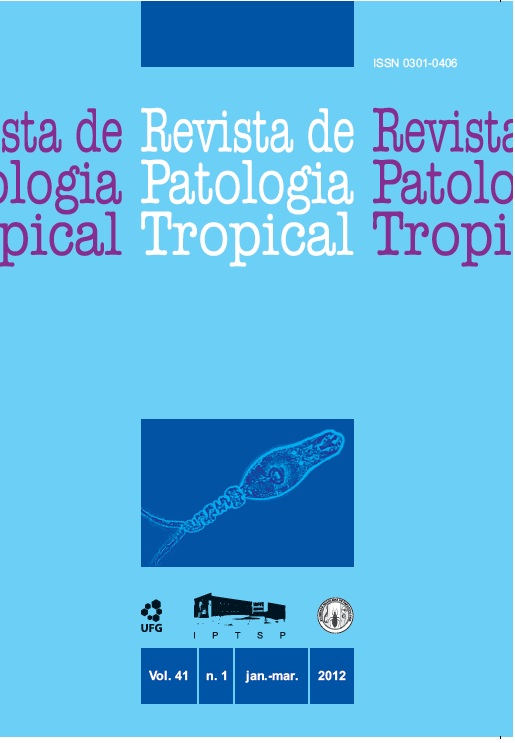Survey of parasite eggs in sandboxes of municipal kindergarten schools in Uruguaiana, Brazil.
DOI:
https://doi.org/10.5216/rpt.v41i1.17744Keywords:
Geohelminths, Parasites, Sand, Squares, Seasonality.Abstract
The aim of this study was to verify the presence of helminths eggs in sandboxes of seven kindergarten schools in the city of Uruguaiana, Rio Grande do Sul State, Brazil, and evaluate the influence of seasonality in the period from July 2008 to June 2009. From 130 sand samples subjected to the technique of Willis (1921) modified by Golvan (1977), 49 (37.7%) were positive for helminths eggs and larvae confirming that the sand of all schools had some kind of parasites. Eggs of the following parasites were found: Hookworms 19.2%, Toxocara spp. 7.7%, Dipylidium caninum
3.1%, Ascaris spp. 3.1%, Trichuris spp. 0.8%; and larvae from the Strongyloididae family 3.9%. The results indicated that during spring and summer there is a higher percentage of infected samples. These results are corroborated by environmental conditions such as higher air and sand temperatures and higher humidity during these seasons, demonstrating the importance of seasonality on parasite viability. This research characterize that the sand in playgrounds has zoonotic contamination.
Measures to avoid domestic animals from having access to the area used for recreation and proper management, such as changing the sand regularly, should be required to prevent excessive contamination and, therefore, minimize risks of infection in children by geoparasites.
Downloads
Downloads
How to Cite
Issue
Section
License
The manuscript submission must be accompanied by a letter signed by all authors stating the full name and email address, confirming that the material has not been published or is under consideration for publication elsewhere, and agreeing to transfer copyright in all media and formats for Journal of Tropical Pathology. The authors will not be paid for published articles. They are solely responsible for the content of those articles, even if the Editor holds the right to adjust them to the norms of the journal.
The reviewers will not be paid for the peer review process.

